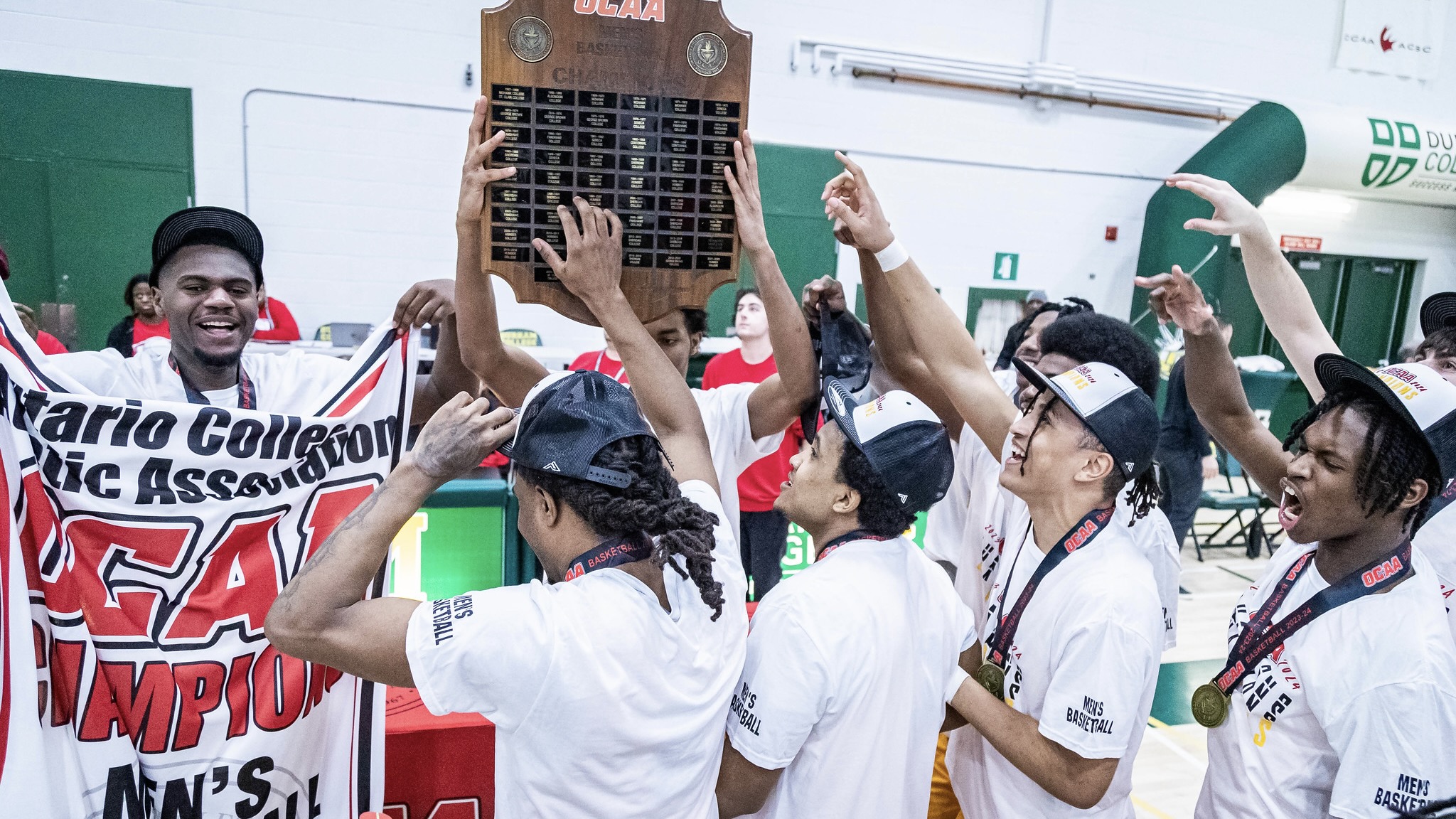It’s not uncommon for student-athletes to struggle with mental health, and Humber is doing their part to help lessen the burden.
A combination of faculty support, players holding each other accountable and students communicating with faculty when help is needed, aids student-athletes in balancing student life and personal life healthily.
Playing a sport takes a lot of time and commitment from the students. To ensure Humber athletes balance the demands of school, personal life, and athletics, the college has several measures in place to ensure Humber student-athletes stay mentally and physically well.
Like their non-athletic student counterparts, student-athletes must juggle school, personal life, and Humber’s athletic schedule. For student-athletes that balance can be hard to achieve without the proper accommodations.
Humber Men’s basketball Head Coach Omar Miles said his role as a high school teacher helped him figure out the best ways to encourage a work-life balance.
He said, “We have academic advisors and as a head coach and as an educator…we tend to focus a lot on being student-athletes, so making sure that we are not inundated with basketball. But also we have time for study hall. We have time for things away from the game as well.”
That’s not a balance that’s easy to achieve, Miles said.
“We just use the services that we have, so we have strength and conditioning, and we also have therapy,” he said. Miles makes full use of Humber’s services, and he makes sure to give his players time off so they have downtime and to not hold practices on the weekend.
For extra help, he turns to the student-athletes’ academic advisors for support to cater to the players. “I think the school accommodates them. So when they have games or practices (and miss class work), the school makes sure that they are not (penalized) by it,” Miles said.
He says, “there’s a heads up that goes to the profs, so if extensions need to be in place, that’s put into place by our academic department.”
A study called Athletic Director’s Desk Reference 2nd Edition by Donna A. Lopiano & Connee Zotos said some coaches put athletes “In untenable situations where they cannot keep up with their studies. yet there’s also pressure on them to get grades that will maintain eligibility to participate” in their sport.
Raising mental health awareness for student-athletes is important to Miles. “It’s absolutely important. Mental health is something that was not really talked about in the past and I’m glad it is something we talked about.”
Miles said it’s crucial to support students academically, not just on the basketball court. “Sometimes it’s performance anxiety on the basketball court, but also it can be in the classroom.”
According to an article by Homewood Health “about 10 per cent of Canadian men experience significant mental health challenges in their life.” The article also mentions that “without support and empathy, men will continue to suffer in silence and experience worsening or more acute challenges with mental health disorders.”
Acknowledging mental health awareness is very important to athletes like Jamani Barrett, a fifth-year media communications student and Humber Men’s basketball player. “I think it’s extremely important, from my perspective alone, because I think it’s kind of glanced over. I think up until recently, especially with COVID, it hasn’t been really looked at as a real issue.”
Barrett also said he’s trying to raise awareness of mental health as part of being a good athlete. “I’ve chosen to dedicate my time postgrad to building awareness around what it takes to be a successful student-athlete and giving other student-athletes the tools to navigate this landscape.”
Barrett knows what it’s like to be an athlete going through an injury and experiencing the mental battle inside your head. Before the COVID-19 pandemic, Barrett suffered a torn ACL while playing varsity basketball in the US and shared his struggles. “I basically had a choice to make: would I give up? Or would I keep going down the path, showing my love for the game, even if I couldn’t really see the finish line? It’s honestly very difficult.”
Barrett played this year’s basketball season on Humber’s team, with a torn meniscus. He said having the support system he had at Humber helped him through his tough time. “I’ve been feeling very overwhelmed this season. And what I’ve been doing is meeting with our wellness coach and athletics and our varsity academic counsellor.”
“They both really just helped me stay on page and prioritize what’s most important right now, and just kind of how we’re going to tackle those things,” Barrett said.
Barrett said playing with an injury this year made him relive some of the things he experienced during his university days.
“But having a new support system around me has allowed me not to crumble during these hard stages. When I faced adversity in the past, I didn’t do so well. But having these people around me allowed me to achieve things that at one point I didn’t really think was possible.”
One thing the Humber Men’s basketball team does to stay on top of everything, according to Miles, is to hold one another accountable.
He said, “So guys late for practice or guys not going to class. It’s the players holding one another accountable. Even on the basketball end, (it’s) players hold each other accountable before the coach has to say anything.
“I think it is a huge factor in being successful in what we do,” Miles said.

